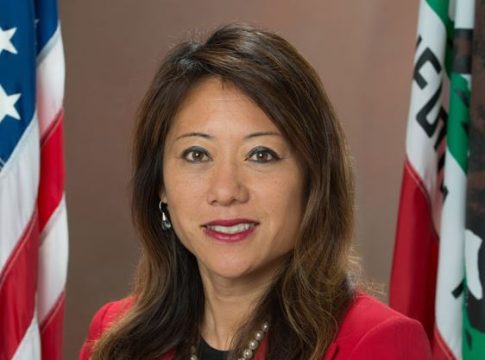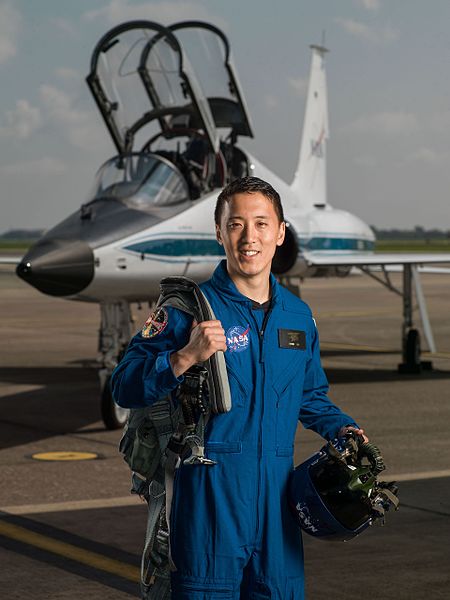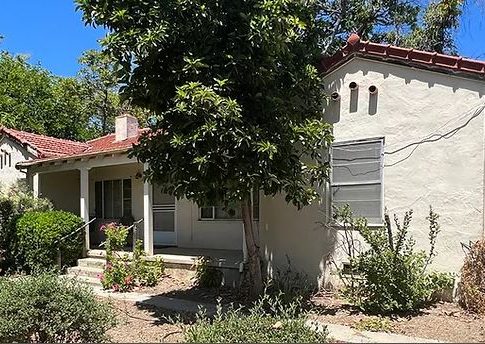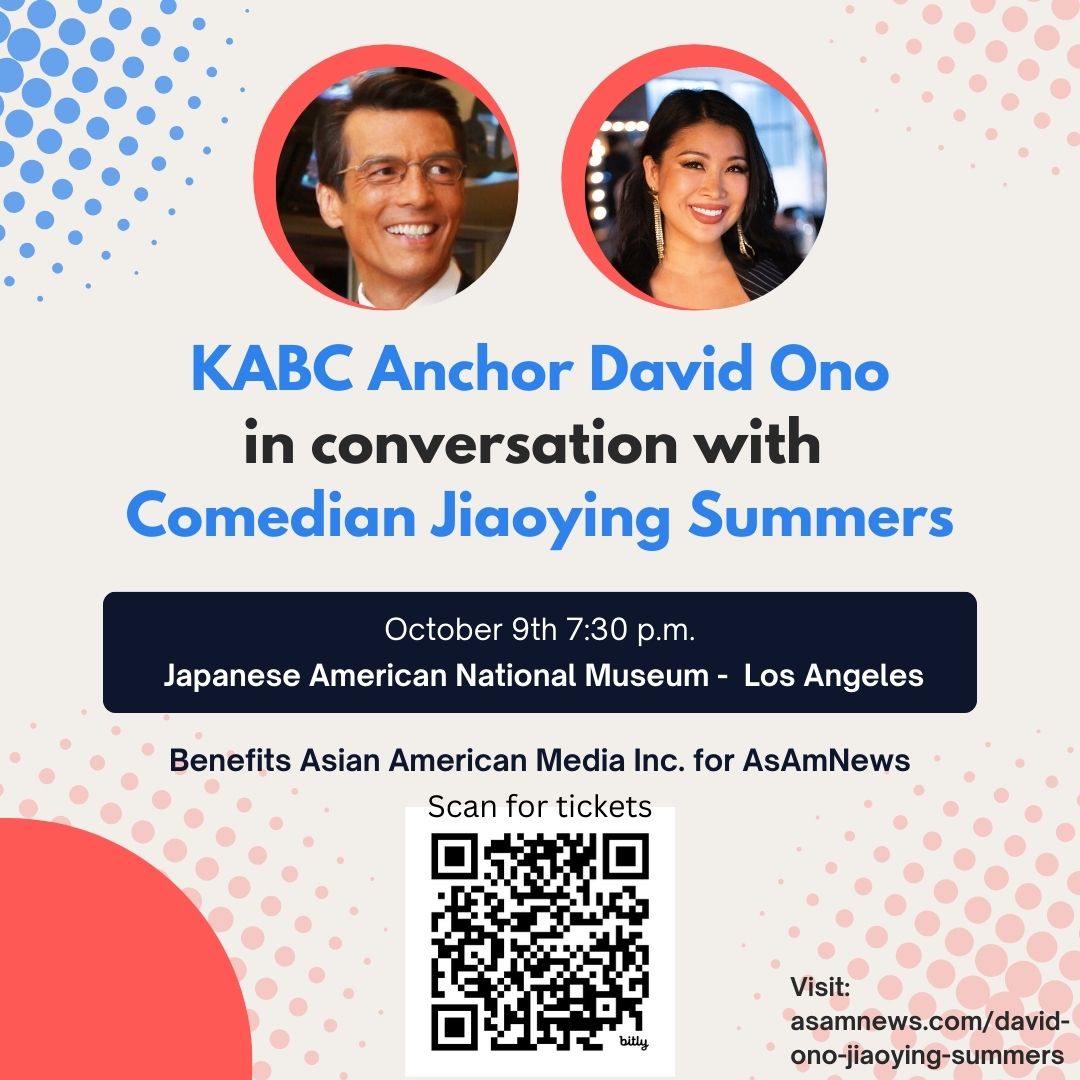By Alexandra Nguyen, AsAmNews Intern
(This story is sponsored by AARP to highlight stories of caregivers)
In Chinese culture, a dominant belief is filial piety. Children take care of their parents when they become elderly. Chinese American Stan Wong showed his filial piety when he became his parents’ caregiver and continues to share his experiences to educate others.
Wong was born and raised in Berkeley, California. He pursued an Associate degree in the Arts at Merritt College. Eventually, he embarked on the business world as a sales manager for food companies traveling throughout the U.S. and Canada.
As Wong grew up, his parents also grew older. Both of his parents developed Alzheimer’s and dementia going back seven years.
LATEST STORIES
In 2017 his mother suffered from her first stroke. From that moment on her memory drastically changed, and Wong knew he had to become his parents’ primary caregiver.
“My parents were skeptical of strangers in their house, so I had to take on the role of a caregiver,” Wong said. “It is not something you think about, however when you love someone you will do what it takes so that can have a quality of life despite their limitations.”
Being a caregiver can feel like an isolating task. “Most caregivers think they are the only one in the world in their situations,” AARP VP of AAPI Audience Strategy, Daphne Kwok said. “It is such a difficult journey financially, emotionally, and physically.”
So, Wong joined an Alzheimer’s support group in San Francisco. Prior to COVID, the group would meet monthly and members would “learn from others what they were doing to take care of their loved ones,” Wong said. The support group taught Wong how to “navigate through the medical system as well as learn techniques on how to handle agitation, confusion, and depression.”
While there are some initiatives and resources, Kwok said “they are so far and few in between.” That is why people like Wong and Kwok are starting a massive conversation.
Kwok and AARP are working to make more resources available for AAPI caregivers, like Wong. “Prepare to Care” workbooks have been produced in English and Chinese. These workbooks “help the community understand that we are caregivers, and you need information and resources about how to take care of your loved ones,” Kwok said.

In 2018, Wong’s mother had a second stroke and died at 97. As his father’s memory progressively grew worse, he realized his father needed 24/7 care.
Wong witnessed the benefits of the support group during this trying time. He “was extremely glad to implement some of the skills and techniques to help train the caregivers,” who were also helping his father.
On average, caregiving for Wong started with checking if they had any medical appointments. Then he would make sure that they took their morning pills and checked for any updates from the previous night. If they were feeling well, Wong would take them out to get grocers or to lunch, which was always “the highlights of their day.”
Becoming a caregiver motivated Wong to give back to the community. In Oct. 2021, he joined the Alzheimer’s Association’s Walk in San Francisco. Just two days before the walk, his father died at 103. Wong “showed up to help set up and volunteered the next day because it provided a safe and nurturing environment.”
In 2022 Wong volunteered for the San Francisco Walk to End Alzheimer’s Committee as the Event Experience Chairman. He wanted it “to have a unique and real San Francisco experience and feeling to it.”
Since then, he has given two interviews on Alzheimer’s with ABC 7 in San Francisco, joined the Alzheimer’s LGBTQ+ Diversity Community Outreach group, and became a certified Alzheimer’s community educator.
Later this year, Wong will be further supporting the San Francisco Walk to End Alzheimer’s on Oct. 19 as Event Experience Co-Chair.
Wong actively participates in several organizations with the hopes of educating and sharing experiences with others in similar situations. “The more I can educate others, hopefully, they can share that in their lives or the lives of others,” he said.
He also hopes to inspire others to get involved. There is a wide range of ways like volunteering for the Walk to End Alzheimer’s in their community, becoming a community educator, speaking to others about the Alzheimer’s Association, and the toll-free 24/7 support hotline. However, there is “still work that needs to be done to provide continued education and outreach to the communities in our area,” Wong said.
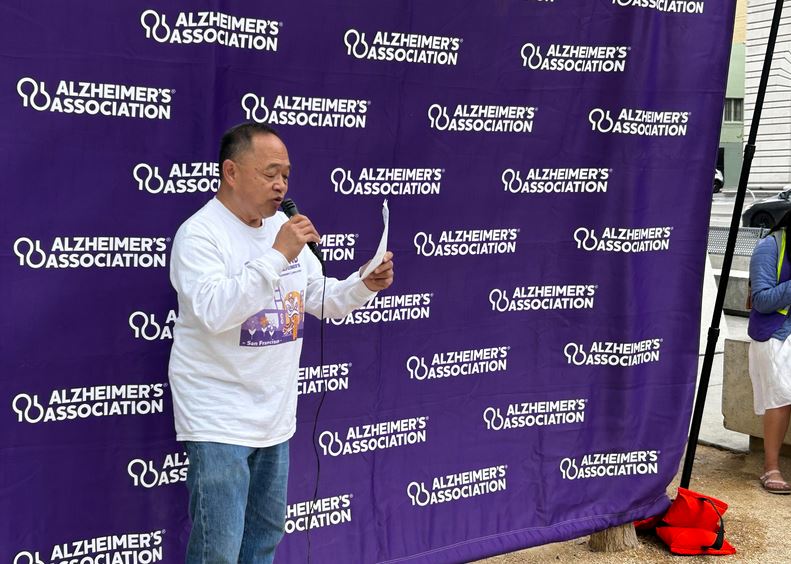
One way to provide such education is to start preparing people at the student level, Kwok suggests. This suggestion stems from the statistics that a quarter of millennials are caregivers and 40% of caregivers are men. If people are given the proper resources sooner, Kwok hopes to see the next generation of well-equipped caregivers eager to support one another.
Kwok recalled a conference at which she attended that Wong spoke at. AARP partners with many community organizations and hosts panels with a variety of speakers. At this particular one, Wong shared his journey.
After his talk a young man, in the healthcare industry came up to Wong. “I could see the wheels turning in his head,” Kwok said. “He was like ‘Oh I never realized until I heard you speak just now that I am a caregiver.”’
Wong’s commitment to educating caregivers has helped establish a community of supporters. His willingness to share his vulnerabilities has facilitated the exchange of stories and experiences between caregivers creating a network of people to learn from. His biggest piece of advice for caregivers: “to take care of themselves.”
AsAmNews is published by the non-profit, Asian American Media Inc. Make a tax-deductible donation of at least $40 or pledge a monthly recurring donation of at least $10 by August 31 and receive a free copy of The Legend of Mu Lan: Heroine of Ancient China, the inspiration for the classic Disney movie. We are supported in part by funding provided by the State of California, administered by the California State Library in partnership with the California Department of Social Services and the California Commission on Asian and Pacific Islander American Affairs as part of the Stop the Hate program. To report a hate incident or hate crime and get support, go to CA vs Hate.




